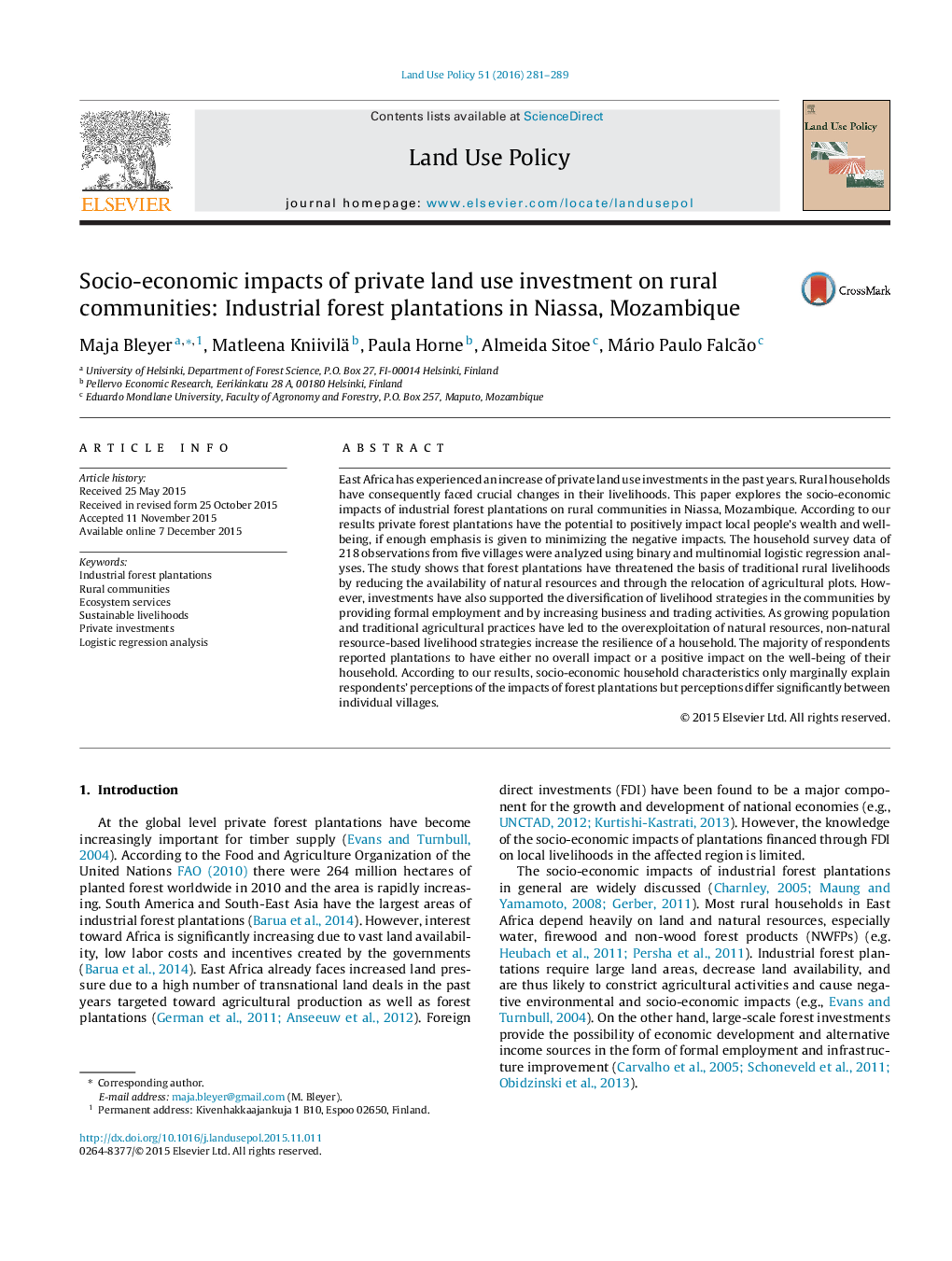| کد مقاله | کد نشریه | سال انتشار | مقاله انگلیسی | نسخه تمام متن |
|---|---|---|---|---|
| 92914 | 160101 | 2016 | 9 صفحه PDF | دانلود رایگان |
• The impacts of plantations on natural resources were perceived as mostly negative.
• The diversity of alternative livelihood strategies has increased.
• The majority perceived either no or positive changes to their overall livelihood.
• Village was a main factor influencing perceptions concerning plantation impacts.
East Africa has experienced an increase of private land use investments in the past years. Rural households have consequently faced crucial changes in their livelihoods. This paper explores the socio-economic impacts of industrial forest plantations on rural communities in Niassa, Mozambique. According to our results private forest plantations have the potential to positively impact local people’s wealth and well-being, if enough emphasis is given to minimizing the negative impacts. The household survey data of 218 observations from five villages were analyzed using binary and multinomial logistic regression analyses. The study shows that forest plantations have threatened the basis of traditional rural livelihoods by reducing the availability of natural resources and through the relocation of agricultural plots. However, investments have also supported the diversification of livelihood strategies in the communities by providing formal employment and by increasing business and trading activities. As growing population and traditional agricultural practices have led to the overexploitation of natural resources, non-natural resource-based livelihood strategies increase the resilience of a household. The majority of respondents reported plantations to have either no overall impact or a positive impact on the well-being of their household. According to our results, socio-economic household characteristics only marginally explain respondents’ perceptions of the impacts of forest plantations but perceptions differ significantly between individual villages.
Journal: Land Use Policy - Volume 51, February 2016, Pages 281–289
